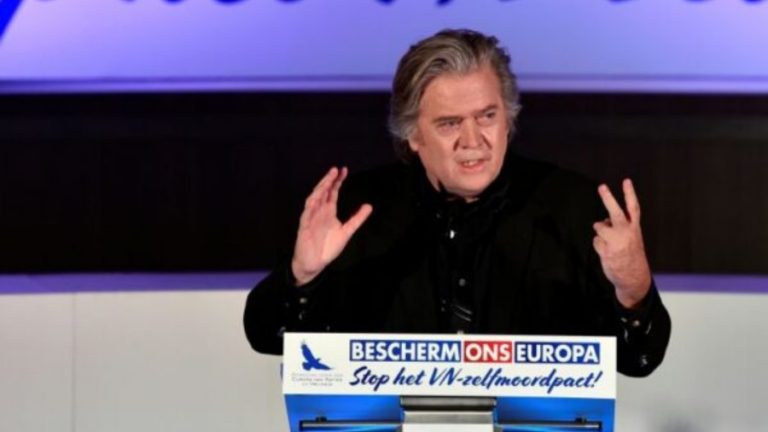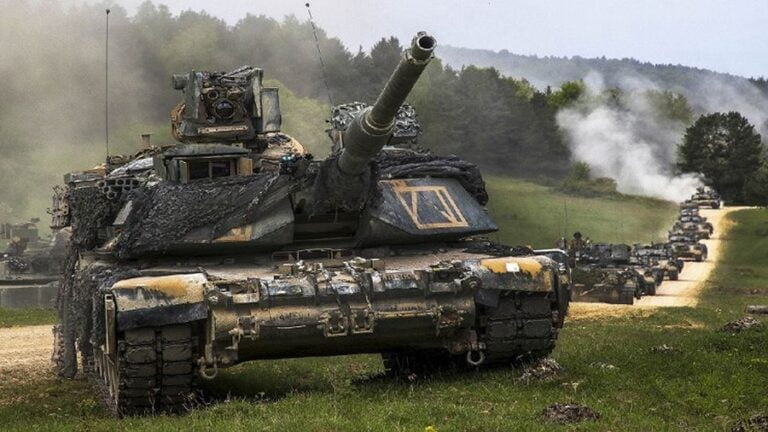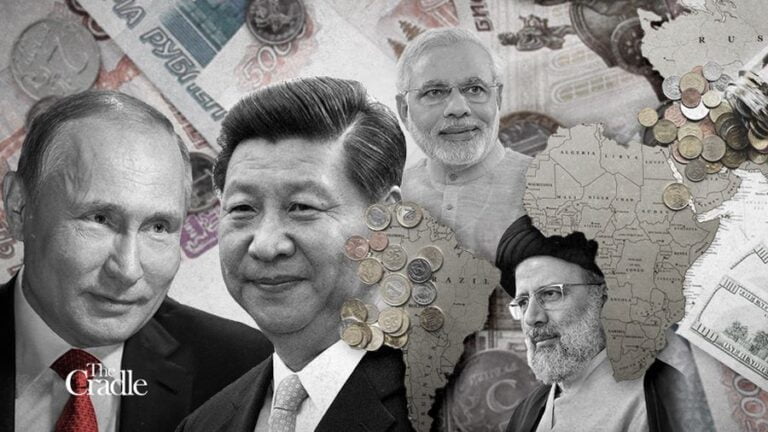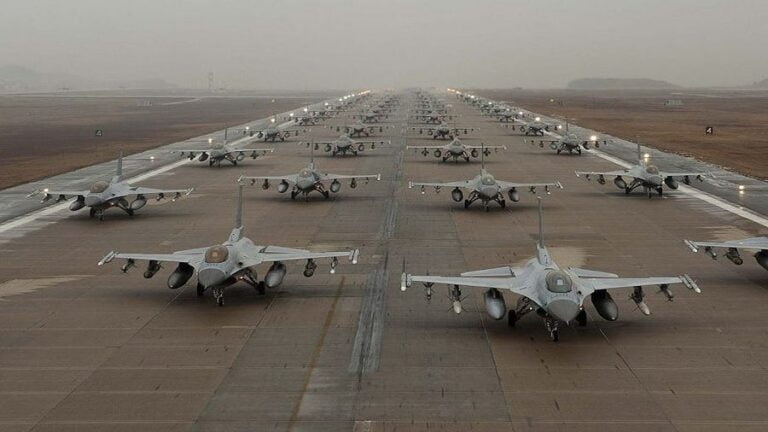The Irresistible Rise of MbS… and His Possible Downfall
In a two-part analysis of the recent and ongoing revolutionary developments in Saudi Arabia instigated and executed by Crown Prince Mohammad bin Salman (MBS), Asia Times editor Uwe Parpart and roving correspondent Pepe Escobar recount the details and background of the recent MBS power grab and attempt to ascertain whether it will last. In a matter of days, MBS may ascend to the throne, leaving to his father, King Salman, the ceremonial role of Custodian of the Two Holy Mosques. The November 4/5 MBS power play was a prelude. What does it portend? Who masterminded it and drove it? Who will benefit? What does it mean for the world’s most volatile region? Below, part 1.
When the black limousines arrived in the dead of night on Saturday November 4, and into Sunday November 5, few of the Saudi princes, ministers, ex-ministers, military leaders, media moguls and top businessmen who had been asked to attend the posh Ritz Carlton hotel in Riyadh’s diplomatic district thought it wise to decline the invitation.
Conveyed by Saudi police, the invitations were issued by Crown Prince Mohammad bin Salman (MBS), chairman of a brand new Supreme Committee to investigate public corruption that was created by a series of royal decrees just hours before the arrests.
The Committee’s powers include
“Investigation, issuance of arrest warrants, travel bans, disclosure and freezing of accounts and portfolios, tracking of funds and assets and preventing their remittance or transfer by persons and entities, whoever they might be.”
Further, “The Committee … may take whatever measures deemed necessary to deal with those involved in public corruption cases and take what it considers to be the right of persons, entities, funds, fixed and movable assets, at home and abroad, return funds to the state treasury and register property and assets in the name of state property.”
Most importantly, while the Committee performs its tasks, it shall enjoy “Exemption from laws, regulations, instructions, orders and decisions.” In other words, it will be above and unfettered by the law.
That’s heavy artillery. King Salman has equipped his son and heir apparent with his very own Committee of Public Safety to do and say and dispose as he sees fit. Whether heads will roll – and if so, whose – remains to be seen.
Foreign media made much of the fact that one of the princes detained was the well-know billionaire businessman Prince Alwaleed bin Talal, a major investor in companies ranging from Citigroup and Four Seasons Hotels to Twitter, News Corp and 21st Century Fox. MBS’s point was clear: no one is immune from the anti-corruption drive.
But that’s PR and misdirection. The real targets among the detained (by now 208 according to the Committee, but closer to 500 by other counts) were those who, close on three years into King Salman’s reign, might yet pose a challenge to the absolute grip on power of father and son.
Target Number One was Prince Mutaib bin Abdullah, second son of the late King Abdullah, head of the National Guard since 2010 and once mooted as a possible future king. From 1962 until 2010, the 100,000-strong Saudi Arabian National Guard (SANG) had been commanded by Abdullah, who leads the Shammar branch of the royal family. The SANG was a rival center of power to the 110,000-strong regular armed forces (army, navy, air force), which were controlled by Defense Minister, MBS, from the Sudairi branch of Al Saud.
With Sandhurst-trained Prince Mutaib, preferred son of Abdullah, relieved of his duties on November 4 by royal decree and invited to join the Ritz Carlton party, the Shammar-Sudairi balance of power is no more.

Another target of the purge – which has been labeled an anti-corruption drive – may have been Prince Mansour bin Muqrin, who died in a helicopter crash near Yemen on Sunday November 5. Riyadh did not comment on the cause of the crash, but the Israeli newspaper Yedioth Ahronoth said the helicopter carrying the Prince and seven aides was shot down by a Saudi warplane in a successful assassination attempt. Mansour was deputy governor of the troublesome southern province of Asir and the son of Prince Muqrin bin Abdulaziz, Director General of Al Mukhabarat Al A’amah (the Saudi Intelligence Agency) from 2005 to 2012. Muqrin became Crown Prince in January 2015 upon King Abdullah’s death but only lasted until April of the same year, when he was replaced by Mohammad bin Nayef.
Mohammad bin Nayef, in turn, was forced to yield his title of Crown Prince to MBS on June 20 of this year and to step down as Minister of the Interior. He has been under house arrest ever since. His father, Prince Nayef, had controlled the Interior Ministry (police and internal security) for more than four decades.
As MBS had been previously appointed Defense Minister right after his father Salman became King in January 2015, all three branches of Saudi Arabia’s security apparatus are now effectively under his control.
Striking where it hurts
Similarly, MBS has added further to his already impressive accumulation of power over the economy, state finances, and the media. Among those relieved of their posts and arrested were Economy and Planning Minister Adel bin Mohammad Faqih and the heads of the main three Saudi-owned TV networks, Walid Al Brahim (MBC), Saleh Kamel (ART) and Alwaleed Bin Talal (Rotana). Also detained was former Finance Minister Ibrahim al-Assaf, a fellow board member with MBS at Saudi Aramco.
The Financial Times reports that Saudi officials are asking the businessmen, royals and ministers detained in the purge to pay as much as 70% of their wealth in return for their freedom.
The real targets among the detained were those who might still pose a challenge to the absolute grip on power of father and son
The Saudi Monetary Agency (SAMA) has ordered the freezing of 1,700 bank accounts (by latest count) of individuals allegedly linked to corruption, including hundreds who aren’t under arrest.
The potential MBS Supreme Committee heist could easily be as high as US$100 billion, twice the size of the annual Saudi government deficit of US$52 billion (2017).
That’s a boon for a man who wants to reform the economy and says he doesn’t want to rely on oil revenues alone. In the first instance, though, it’s another power play: take away your rivals’ money and you take away their ability to come after you. Anti-corruption drives and rhetoric are tried and trusted contrivances in the toolkit of autocrats anywhere. But, writes Patrick Cockburn in the Independent:
“Corruption is a nebulous concept when it comes to states with arbitrary rulers, who can decide – unrestrained by law or democratic process – what is legal and what is illegal.
“Anti-corruption drives don’t work, because if they are at all serious, they soon begin to cut into the very roots of political power by touching the ‘untouchables’.”

Anti-corruption drives, we might add, tend to lack something in conviction when they come from a prince who – on the spur of the moment – buys a 500 million euro yacht after spotting it while vacationing in the south of France (as was the case with MBS’s 2016 purchase of the 440ft yacht Serene from Russian vodka tycoon Yuri Shefler).
A new dynastic line
With MBS’ anti-corruption-camouflaged power grab, facilitated by his father, the tradition of power-sharing and rule by consensus within the House of Saud has ended. MBS appears to have neutralized any remaining power centers in the kingdom that could challenge his rule. When he ascends to the throne, he will – in a long-overdue generational change – be the first grandson of Abdulaziz ibn Saud, the founder of modern Saudi Arabia, to do so. He will also be the most powerful man in the country since his grandfather – and the founder of a new Sudairi dynastic line.
How did this come to pass? And how will it play out?
Despite his many posts, Mohammed bin Salman has no military and minimal international experience. His education is limited to a bachelor’s degree in Islamic Law from King Saud University in Riyadh.
On December 2, 2015, less than a year after MBS was anointed Deputy Crown Prince and appointed the world’s youngest minister of defense, Germany’s foreign intelligence service (BND) published an analysis (one apparently not coordinated with and in fact rejected by the German foreign ministry), that stated: “The earlier careful diplomatic posture of the older leading members of the [Saudi] royal family is being replaced by an impulsive policy of intervention.”
The BND dossier blamed MBS and concluded that the concentration of economic and foreign policy power in the hands of the Deputy Crown Prince “harbors the latent risk that in the attempt of establishing himself as the heir of the king during his father’s lifetime he will overplay his cards.”
By Uwe Parpart and Pepe Escobar
Source: Asia Times







